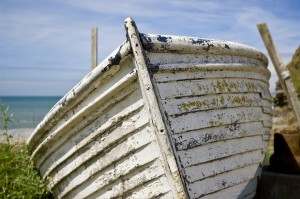For anyone looking to buy their first boat, buying a second hand boat is a sound idea, because whilst in theory the whole idea of owning a boat and heading out whenever the fancy takes you sounds great, the reality doesn’t always match up for everyone. Buying a second hand boat means that you’re not risking quite as much money as you would if you’re buying new. Having said that some people almost only ever buy second hand, trading up gradually over time.
But the problem is that if you’re coming at the idea of buying a boat for the first time, you have little experience in choosing a boat, and may well find the whole idea of assessing them a little daunting. Just like buying a second hand car, some people simply kick the tyres and have a walk around, but that’s really not good enough.

There are some great buys out there, but there are also a good many things to watch out for. From stolen boats, to boats which have flooded or sunk and been rescued, and from boats which have been round the world more times than the moon to boats which are only managing to stay afloat on a wing and a prayer, both of which are starting to fray – it can be a minefield.
So what should you look out for when buying a second hand boat, and what should you try to do in order to make sure that you’re investing in something that’s truly worthwhile?
When buying a second hand boat you have three possible options – buy privately, go to a broker, or go to a marine dealership. There are two main differences between buying privately and going through a broker or dealership – first of all private sales tend to be cheaper, and secondly, they don’t usually come with any kind of warranty.
That means that you have to weigh up the advantages of saving money on the purchase price against the downside of having no warranty should you buy a lame duck that sinks.
There is an option which you can go for if buying privately which can help save you from either buying a boat which is not in good condition, or from buying a boat that’s overpriced, and that’s to use the services of a marine surveyor. Just as when buying a house you’ll get a surveyor to check it all over, identifying those potential problems which aren’t evident to most people, having a marine surveyor on your side can make all the difference. Yes, hiring a surveyor will add to the total cost, but it can save you a fortune in the long run.
One of the things to notice is the general condition of things which aren’t too important, such as the fixtures and fittings. This might seem odd, but generally if these have been looked after then those parts of the boat which are less obvious but of greater importance will also have been cared for. If you see obvious signs of neglect then this is a warning sign.
Look out for water damage or a water line as this will indicate that it has taken on water in the past, and make sure that you ask them to test equipment such as the bilge pump, freshwater system, generators, heaters and such like.
To make sure that the boat isn’t stolen or has any kind of dubious past make sure you check that the hull registration number matches the one on the documents, and that there is no evidence of any kind of tampering. If possible make sure that the boat is taken out into the water – most private sellers will be happy to do this for you.
Bouwe Bekking has some practical tips for when you are buying a boat yourself. There are also sales tips for when you are selling a boat yourself. His website is specifically aimed at private boat buyers and sellers who want to do it themselves. The sales module replaces the yacht broker and saves you a hefty brokerage fee.
You can watch the video and also read the tips underneath the video.
Buying yourself: http://doityourselfyachtbroker.com/en-gb/buying-tips/
Selling yourself: http://doityourselfyachtbroker.com/en-gb/sales-tips/